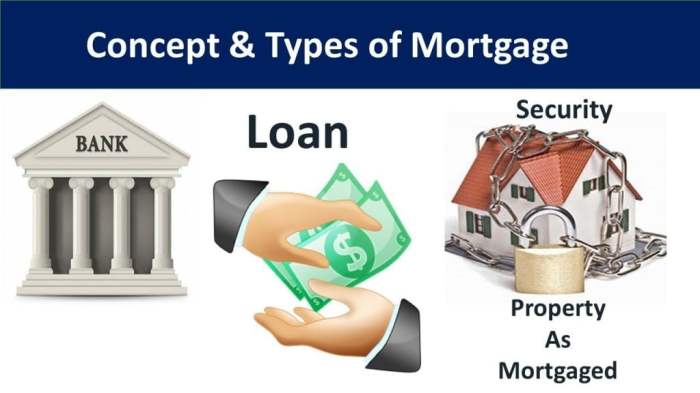How to find out what mortgage company owns a house is a question many people ask, whether for investment purposes, curiosity, or due diligence. Uncovering this information might seem daunting, but with the right approach and resources, it’s entirely achievable. This guide walks you through several methods, from exploring county property records to utilizing online tools and contacting relevant parties.
We’ll also delve into interpreting mortgage information and understanding the legal and ethical considerations involved.
Finding the mortgage holder involves navigating various public records and potentially contacting government offices. This process can be time-consuming, but understanding the resources available and the steps involved makes the task significantly easier. We’ll break down each method, highlighting the pros and cons of each approach, helping you choose the most efficient path for your situation.
Understanding Property Records: How To Find Out What Mortgage Company Owns A House

Source: explosion.com
Finding out which mortgage company holds a loan on a specific property often involves navigating public property records. These records are a treasure trove of information, detailing the ownership history, tax assessments, and, crucially for our purposes, the mortgage information associated with a property. Understanding how to access and interpret these records is key to your search.County recorder’s offices are the keepers of this vital information.
They maintain detailed records of all real estate transactions within their jurisdiction, acting as the official repository for documents related to property ownership and liens. This includes mortgages, deeds, and other legal documents that trace the history of a property’s ownership and financing. Think of them as the central database for all things related to property in a given county.
Accessing County Property Records Online
Many county recorder’s offices now offer online access to their records, making the process significantly easier. However, the specific steps and functionalities can vary widely depending on the county. Here’s a general guideline:
1. Locate your county’s recorder’s office website
A simple web search for “[County Name] Recorder” or “[County Name] Property Records” will usually lead you to the correct website.
2. Navigate to the property search function
Most websites will have a prominent search bar or a link labeled “Property Search,” “Property Records,” or something similar.
3. Enter the property address or parcel ID
You’ll need the full address of the property or, ideally, its parcel ID number (a unique identifier assigned to each property). Parcel IDs are often found on property tax statements or through a preliminary search on the county website.
4. Initiate the search
Once you’ve entered the necessary information, click the search button.
5. Review the search results
The results will likely display a summary of the property information, including ownership details and any recorded liens, such as mortgages. You may need to click on individual entries to view complete documents.
Property Record Formats
The format of the property records you encounter will vary depending on the county and its level of digitalization. You might find:* Scanned Images of Documents: Many counties provide access to scanned copies of original documents, such as deeds and mortgage assignments. These images often retain the original document’s format and may require some interpretation.
Digital Databases
Some counties have fully digitized their records, offering searchable databases with detailed information presented in a user-friendly format. These databases usually allow you to easily filter and sort data.
Hybrid Systems
Some counties may use a combination of scanned images and digital databases, providing different levels of access depending on the type of record.
Comparison of County Recorder Websites
It’s important to understand that the online experience can differ dramatically from county to county. Below is a sample comparison (actual ease of use, features, cost, and completeness will vary widely and should be confirmed directly with each county’s website).
| County | Ease of Use | Search Features | Cost | Data Completeness |
|---|---|---|---|---|
| Example County A | Easy, intuitive interface | Address, parcel ID, owner name | Free | Comprehensive, up-to-date |
| Example County B | Moderately easy, some learning curve | Address, parcel ID | Free | Mostly complete, some older records may be missing |
| Example County C | Difficult, outdated interface | Limited search options (address only) | Paid access for detailed records | Incomplete, many records unavailable online |
| Example County D | Very easy, excellent design | Address, parcel ID, owner name, document type | Free for basic searches, paid for full document downloads | Very comprehensive, regularly updated |
Utilizing Online Search Tools

Source: quantumbooks.com
Finding the mortgage holder for a property using online tools can be a helpful starting point, but it’s crucial to understand their limitations. While many websites offer property information, the accuracy and completeness of data can vary significantly. Don’t rely solely on online searches for definitive answers; always consider this information preliminary and requiring further verification.Online search engines, like Google, are generally not designed for comprehensive property record searches.
While you might find some information through general searches, you’ll likely uncover fragmented and unreliable data. The results may include outdated information or lead you down irrelevant paths. A more focused approach using dedicated property record websites is recommended for reliable results.
Reliable Online Resources for Property Information
Several reputable websites specialize in providing access to property records and ownership information. These resources often aggregate data from various county and state offices, providing a more centralized and potentially more complete picture. Many offer both free and paid services, each with its own advantages and disadvantages. Examples of these websites include those operated by county assessors’ offices (many of which have online portals), state government websites dedicated to property records, and specialized private companies that compile and sell this data.
The quality and comprehensiveness of information vary depending on the specific website and the jurisdiction.
Free Versus Paid Property Search Services
The choice between free and paid property search services often depends on your needs and budget. Free services typically offer limited information and may not cover all properties or jurisdictions. Paid services, on the other hand, usually provide more comprehensive data, faster search speeds, and advanced search filters.
- Free Services: Advantages: No cost; readily accessible; sufficient for basic information needs in some cases.
- Free Services: Disadvantages: Limited data; often incomplete or outdated information; may lack advanced search features; slower search speeds; may contain inaccuracies; may only cover certain regions.
- Paid Services: Advantages: Comprehensive data; access to historical records; advanced search filters; faster search speeds; usually more accurate and up-to-date information; often include additional features such as property tax information or ownership history.
- Paid Services: Disadvantages: Cost involved; subscription fees can vary; may still have some limitations depending on the provider and the jurisdiction.
Contacting Relevant Parties

Source: firstoptiononline.com
Sometimes, online searches fall short, and you need to reach out directly for property ownership information. The county assessor’s office is your best bet for accurate and up-to-date details. They maintain detailed property records, including ownership information.Contacting the county assessor’s office can be efficient and straightforward, yielding quick results if you follow a clear process. Remember to be polite, clear, and provide all necessary information to expedite the process.
Contacting the County Assessor’s Office
To contact the county assessor’s office, you can typically reach them via phone, mail, or email. Their contact information, including phone numbers and email addresses, is usually readily available on the county’s official website. Look for a section on “Assessor,” “Property Records,” or “Tax Assessor.” Many counties also offer online portals for submitting inquiries.
Sample Email Template for Contacting the County Assessor’s Office, How to find out what mortgage company owns a house
Subject: Inquiry Regarding Property Ownership – [Property Address]Dear [Assessor’s Office or Specific Contact Person],I am writing to inquire about the current owner of the property located at [Property Address]. I need this information for [briefly state your reason – e.g., personal research, legal purposes].Please provide me with the name(s) and address(es) of the current owner(s) of record. If there are any associated fees for this request, please let me know.Thank you for your time and assistance.Sincerely,[Your Name][Your Phone Number][Your Email Address]
Best Practices for Communicating with County Officials
When contacting county officials, remember to be respectful and professional. Clearly state your request and provide all relevant information, such as the property address and your reason for needing the information. Be patient; these offices often handle a high volume of inquiries. If your initial contact doesn’t yield the information you need, don’t hesitate to follow up politely.
Keeping a record of your communication (emails, phone calls, etc.) can be helpful if you encounter any delays.
Potential Individuals or Departments to Contact Within the County Office
The specific departments and contact persons may vary by county, but some common points of contact include:
- Assessor’s Office: This is the primary department responsible for maintaining property records.
- Recorder’s Office: This office often handles deeds and other official property documents.
- Tax Collector’s Office: While not directly responsible for ownership, they might have access to related information.
- Specific Contact Person: Many county websites list specific individuals to contact for property information inquiries.
Remember to check your county’s website for the most accurate and up-to-date contact information.
Interpreting Mortgage Information

Source: com.au
Understanding mortgage documents and property records is crucial for identifying the mortgage company that owns a house. These documents contain specific terminology and information presented in a way that can seem confusing at first. However, with a little knowledge, deciphering them becomes straightforward. This section will equip you with the tools to interpret this information effectively.
Common Mortgage Terminology
Mortgage documents utilize specific terminology. Familiarizing yourself with these terms will greatly aid your understanding. For example, the “mortgagor” is the borrower (the homeowner), while the “mortgagee” is the lender (the mortgage company). A “deed of trust” is a document used in some states instead of a traditional mortgage; it conveys ownership to a trustee who holds it on behalf of the lender.
The “note” is a promissory note outlining the terms of the loan, including the amount borrowed, interest rate, and repayment schedule. Finally, the “loan number” acts as a unique identifier for the specific mortgage.
Interpreting Mortgage Information to Identify the Lender
The lender’s name is usually clearly stated within the mortgage document itself. Look for the name on the first page, typically near the signature lines. For example, a deed of trust might explicitly state “Lender: Acme Mortgage Company.” In other instances, the lender’s name may appear in the body of the document within sections describing the loan terms or the parties involved.
Property records, such as the deed, might also list the lender as the mortgagee or beneficiary, depending on the state’s legal framework.
Deciphering Different Types of Mortgage Documents
Mortgages and deeds of trust are the two primary types of mortgage documents. A traditional mortgage is a direct agreement between the borrower and the lender. The lender has a direct lien on the property. A deed of trust, on the other hand, involves a third party – the trustee – who holds the title to the property on behalf of the lender.
Both documents, however, contain the lender’s name, the loan amount, the interest rate, and other essential details needed to identify the lender. The key difference lies in the legal structure of the loan. Examining the document’s title and carefully reviewing the introductory and signatory sections will quickly reveal which type you’re dealing with and the lender’s identity.
Flowchart for Analyzing Mortgage Information
Understanding the steps involved in identifying the lender from mortgage information is simplified by using a flowchart. The flowchart visually represents the process: Start -> Read information from mortgage documents and property records -> Find lender name (often in the introduction or signatory sections) -> End.
Understanding Legal Considerations

Source: themktgboy.com
Accessing and utilizing property ownership information, while seemingly straightforward, carries significant legal and ethical implications. Understanding these implications is crucial to avoid potential legal repercussions and maintain ethical conduct. Misuse of this information can lead to serious consequences.Knowing who owns a property and the details of their mortgage can be tempting, but it’s essential to remember that this information is considered private and protected under various laws.
Improper access or disclosure can result in legal penalties, including fines and even criminal charges. The lines between legitimate research and illegal intrusion are often blurred, making careful consideration of legal boundaries paramount.
Privacy Concerns Associated with Obtaining Mortgage Company Information
Obtaining mortgage company information involves navigating sensitive personal data. The Fair Credit Reporting Act (FCRA) and other privacy laws strictly regulate the collection, use, and disclosure of consumer financial information, including mortgage details. Unauthorized access or dissemination of this data constitutes a violation of these laws and can expose individuals to identity theft and financial fraud. For example, sharing a homeowner’s mortgage information without their consent could lead to scams targeting them or their financial accounts.
The potential for harm underscores the importance of adhering to legal and ethical guidelines when searching for such data.
Ethical Considerations of Accessing Sensitive Property Records
Beyond legal considerations, ethical responsibilities guide how we handle sensitive property records. Respecting the privacy and confidentiality of homeowners is paramount. Even if accessing information is legally permissible, it doesn’t automatically make it ethically sound. Using information for personal gain, malicious purposes, or harassment is clearly unethical. For instance, using property ownership data to target homeowners with unsolicited sales pitches or to engage in intimidation tactics would be considered unethical.
Maintaining transparency and respecting the boundaries of private information is essential for responsible data handling.
Best Practices for Ethical and Legal Compliance
Before embarking on any property ownership research, it’s vital to establish a framework of best practices. This ensures compliance with relevant laws and upholds ethical standards.
- Only access information for legitimate purposes: Limit your searches to those with clear and justifiable reasons, such as legitimate business needs or personal property research for a clearly defined purpose.
- Respect privacy laws: Familiarize yourself with relevant federal and state privacy laws, including the FCRA, and adhere strictly to their regulations.
- Obtain consent when necessary: Whenever possible, obtain explicit consent from the homeowner before accessing or using their private information.
- Use information responsibly: Never use obtained information for illegal or unethical activities, including harassment, fraud, or identity theft.
- Securely store and dispose of data: Protect sensitive information from unauthorized access and dispose of it securely once it is no longer needed.
- Report suspicious activity: If you encounter any suspicious activity related to property ownership information, report it to the appropriate authorities.
Final Wrap-Up

Source: com.my
Discovering which mortgage company holds a lien on a property requires a multi-faceted approach, combining online research with direct communication with local authorities. While online resources offer a convenient starting point, thoroughness often necessitates contacting county offices for complete and accurate information. Remember to always respect privacy laws and ethical considerations when accessing property records. By following the steps Artikeld, you can confidently navigate this process and obtain the information you need.